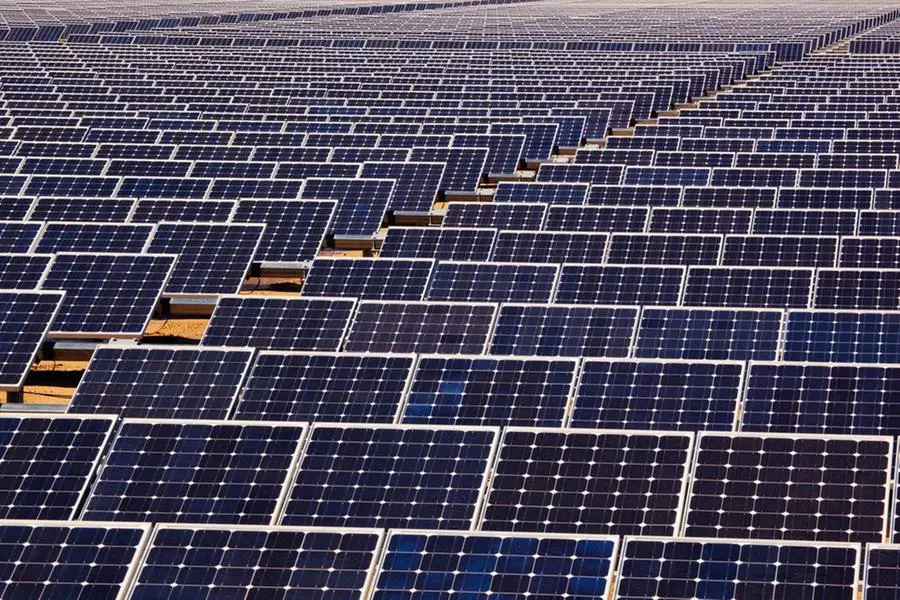PHOTO
The surge towards cost-cutting solar energy continues in Bahrain with plans to install panels on 24 ministry buildings and 20 more schools in the coming months ... and that could just be a drop in the ocean compared to exciting plans to come.
Sustainable Energy Authority (SEA) president Dr Abdulhussain Mirza revealed that the current move would slash utility bills with savings of 30 per cent for electricity per unit.
“They will be spending close to 20 fils per unit once photovoltaic panels are installed by the SEA, free of cost,” he said.
Dr Mirza explained that green energy companies bid on the projects, finance and construct the installations and do the maintenance in return for a tariff, which is less than the government tariff of 29 fils per electricity unit.
“Twenty-four ministries are working with SEA to install solar roof tops, following the successful pilot project on eight schools which had 20 buildings inside the campuses,” Dr Mirza told the GDN.
“We had been working with the Education Ministry on the project – executed on the Build, Own, Operate and Maintain (BOOM) mode – for 20 years.
“We received bids at rates that were 30pc less than the government tariff of 29 fils. It is a great achievement, as the ministry is spending no money on the project, while saving 30pc electricity costs.
“Following the trial’s success, the ministry has asked our support for 20 more schools, while we also have 24 ministries, including the Education Ministry with buildings inside, lined up to go solar.”
The latest details add to Dr Mirza’s green projects presentation to the Rotary International 8th District 2452 Conference highlighted in the GDN yesterday.
The GDN in April also reported that solar panels have been installed on the rooftops of eight schools, while the authority was planning to cover 530 government buildings, hospitals and schools in the future.
“We will be doing it gradually, a phase at a time, as batches of two to three entities at a given time, and the first batch will go out for tendering this year,” added Dr Mirza.
He believes similar savings or more may be achieved as a result of the acclaimed solar project at Bahrain International Circuit (BIC), which is at the tendering stage. It is also a BOOM grid-tied solar PV power plant with a minimum capacity of 3MWac.
Dr Mirza was speaking exclusively to the GDN after a presentation at the Capital Trustees Board weekly majlis.
He said the SEA had completed a ‘green building code’, which as announced earlier, has 10 mandatory specifications. Another 64 specifications have been included which are ideal, but optional at the moment, he said.
“If the building owner chooses these, he can save in the consumption of electricity and water. SEA will rank the buildings based on the number of specifications chosen – as in gold or silver – the more they save on electricity and water, the higher the rank.
“The labelling scheme will be rolled out next year and is part of the National Energy Efficiency Action Plan.”
He highlighted the challenge of finding large plots for solar installation as land is limited and mostly privately owned.
“We are now carrying out research to come up with usable land for large solar projects,” he said.
Dr Mirza reiterated that floating solar and wind turbines offered a powerful opportunity, as Bahrain’s territorial waters were four times the size of the land.
SEA has also been working on an interactive wind atlas since 2018 to provide information on the potential of wind energy in various regions – on land and in regional waters.
Capital Trustees Board public relations and media committee head Dr Maha Al Shehab praised SEA’s efforts to provide clean energy at a reasonable cost.
“The use of clean energy preserves the health of humans, living organisms and the environment and reduces the temperature of the earth and will not generate harmful waste,” she said.
l Dr Mirza held a remote meeting with a delegation from the UK-based Hydro Solar Energy Limited, led by chairman Steve White and discussed prospects of co-operation.
Dr Mirza highlighted Bahrain’s strides to achieve the goals of the national for renewable energy. Bahrain has drawn up plans to produce 5pc of its total power through green energy by 2025, gradually reaching 10pc by 2035 in co-operation with the private sector.
© Copyright 2020 www.gdnonline.com
Copyright 2021 Al Hilal Publishing and Marketing Group Provided by SyndiGate Media Inc. (Syndigate.info).





















